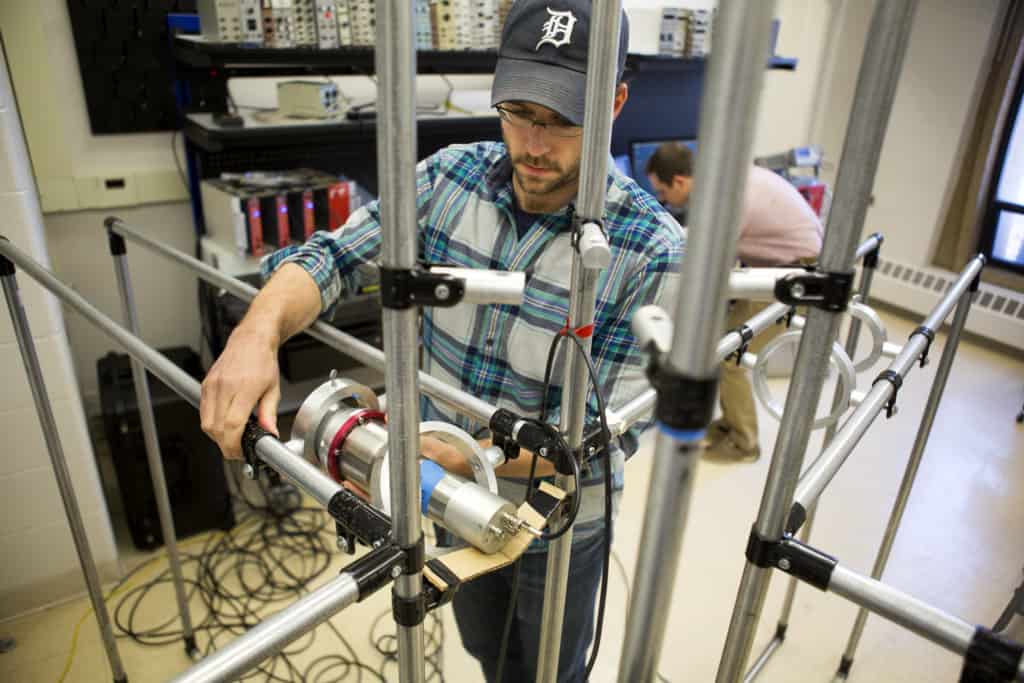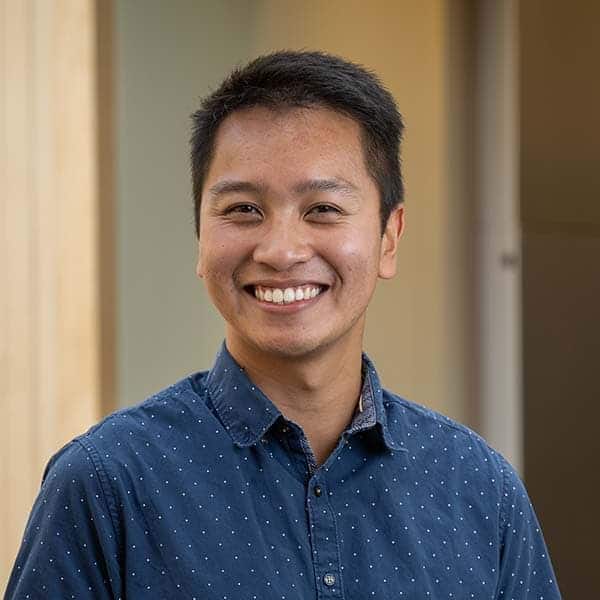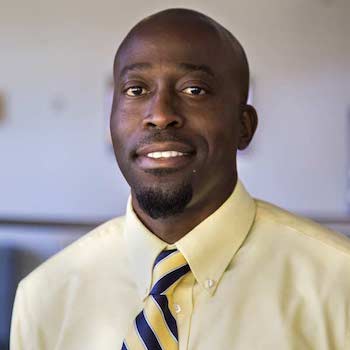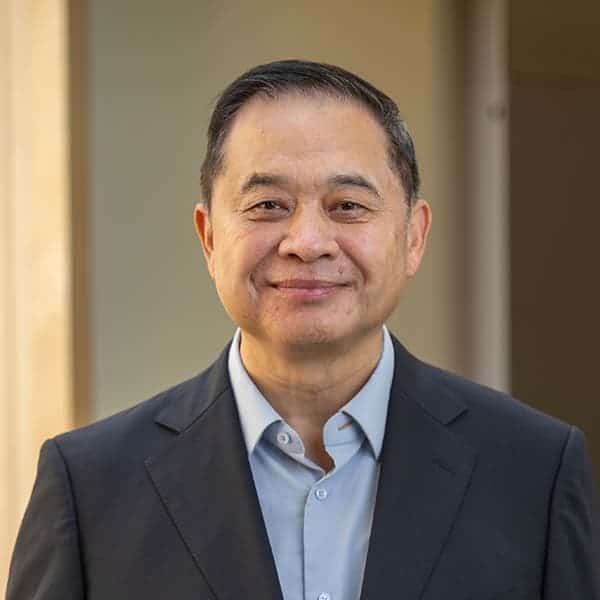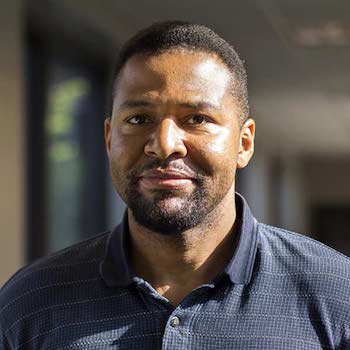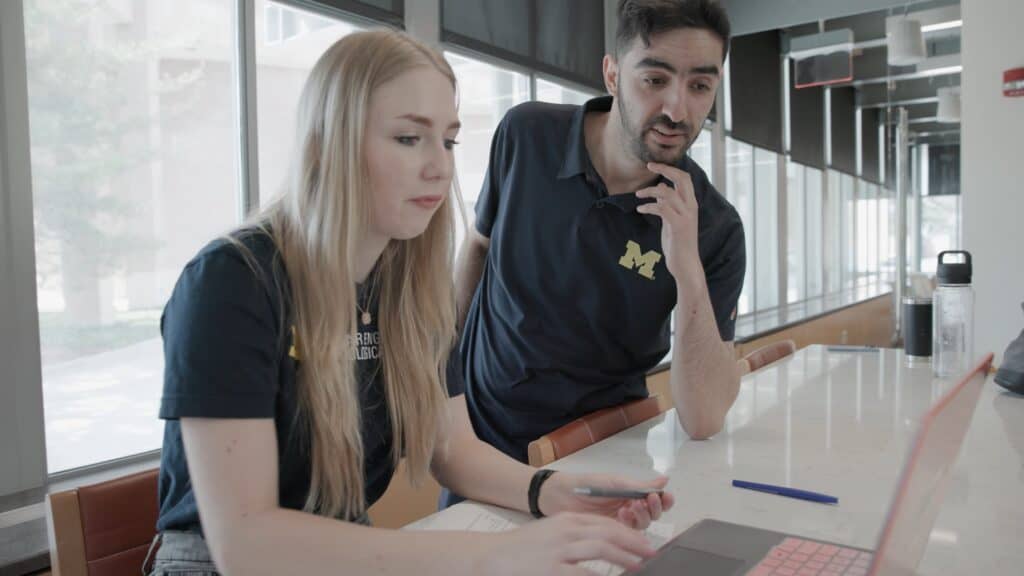
Graduate Program
MSE and PhD in Nuclear Engineering & Radiological Sciences
Our graduate program is among the most highly regarded nuclear engineering programs worldwide, consistently ranked first in the nation by U.S. News and World Report.
As the department continues to advance the fast-evolving field of nuclear engineering and radiological sciences, our graduate curriculum prepares students to shoulder leadership roles as their careers progress following master’s or doctoral degrees.
PhD in NERS
The PhD program in Nuclear Engineering and Radiological Sciences prepares students to lead transformative research in fields critical to energy, health, security, and the environment. With access to world-class faculty, cutting-edge laboratories, and interdisciplinary collaboration across engineering, science, and public policy, students in the program are equipped to tackle some of the most pressing scientific and technological challenges of our time. Whether working on advanced reactor design, nuclear materials, plasma science, radiation detection, or medical physics, PhD students engage in original research that pushes the boundaries of knowledge and drives innovation across academia, industry, and government.
Beyond research, the program offers a rich ecosystem for professional and personal development. Doctoral students receive individualized mentorship, participate in global collaborations, and gain valuable teaching experience. They are supported by a strong network of alumni, research centers, and national lab partnerships, and many are recognized with prestigious fellowships and awards. Whether their path leads to academia, national laboratories, policymaking, or entrepreneurship, graduates of the NERS PhD program leave with the expertise, leadership skills, and vision to shape the future of nuclear science and engineering.
MSE in NERS
Choosing to pursue a Master of Science in Engineering (MSE) in Nuclear Engineering & Radiological Sciences offers a strategic balance between the breadth of a bachelor’s degree and the depth of a PhD. For students who want to specialize in a technical field and enter the workforce with a competitive edge, our MSE provides advanced training in critical areas such as reactor modeling, radiation detection, nuclear materials, or plasma applications—without the extended time commitment of a doctoral program. It allows students to tailor their education through focused coursework and research experiences, developing real-world skills that are immediately applicable in industry, national labs, and government roles.
Unlike a BSE, which offers a broad foundation, the MSE equips graduates with specialized expertise that can lead to higher starting salaries, increased responsibilities, and greater leadership potential early in their careers. And while a PhD is ideal for those pursuing academic or deeply research-oriented paths, many students find the MSE to be the perfect choice when they want to make an impact through applied engineering, innovation, or product development. It’s a powerful, flexible credential for those ready to deepen their knowledge and accelerate their professional trajectory.
Current NERS undergraduate students who are interested in fast-tracking their graduate education may also consider the Sequential Undergraduate/Graduate Studies (SUGS) program. This five-year option allows students to begin taking graduate-level coursework during their the senior year of their undergraduate studies and earn both a BSE and an MSE (or MEng) with a minimum of 149 total credit hours. SUGS is ideal for students who want to maximize their time at Michigan and enter the workforce with advanced qualifications sooner. Consult with Garnette Roberts or Michelle Sonderman to learn more about the application process and requirements.
Research Options
All NERS PhD students and most Master’s students focus on one of four Research Options that corresponds to one of our four Research Areas. Students have the option to specialize in scientific computing or mathematics as well. We encourage our students to design their own program of study in consultation with their graduate advisor, taking into account their specific backgrounds and professional goals.
Fission Systems & Radiation Transport
Understanding atomic nuclei splitting and radiation movement through materials is crucial for nuclear power, nonproliferation, and various applications in radiation transport and fission systems engineering. Learn more.
Materials & Radiation Effects
Understanding atomic nuclei splitting and radiation movement through materials is crucial for nuclear power, nonproliferation, and various applications in radiation transport and fission systems engineering. Learn more.
Plasmas & Nuclear Fusion
Plasmas have the potential to purify water, propel spacecraft across the solar system and beyond, heal wounds, ignite nuclear fusion and more. Learn more.
Policy & Climate
Understanding the societal, economic, and policy dimensions of nuclear technology is crucial for addressing climate change, shaping energy transitions, and ensuring global security. Learn more.
Radiation Measurements & Imaging
Radiation measurements are important for medical imaging, archaeology, astrophysics, and preventing the spread of nuclear weapons. Learn more.
Students also have the option to specialize in scientific computing or mathematics.
Who Should Apply?
Our graduate program is tailored for individuals who are passionate about advancing their expertise and making a meaningful impact in the field of nuclear engineering and radiological sciences. Ideal candidates include:
Aspiring Researchers and Scholars
Individuals who are driven to pursue research at the forefront of the field. Whether your interests lie in nuclear energy, medical physics, radiation detection, or other specialized areas, our program provides the resources and support to turn your research aspirations into reality.
Industry Professionals Seeking Advancement
Professionals already working in the nuclear industry who are eager to deepen their knowledge, expand their skill set, and advance their careers. Our program offers opportunities to gain specialized expertise and stay abreast of the latest developments in the field, preparing you for leadership roles and new opportunities within the industry.
Future Educators and Academics
Aspiring educators who are passionate about sharing their knowledge and shaping the next generation of nuclear engineers and radiological scientists. Our program provides a strong foundation in both theoretical principles and practical applications, equipping you with the tools and expertise needed to excel in academia.
Government and Policy Professionals
Individuals interested in shaping nuclear policy, regulation, and international relations. Our program offers insights into the societal, ethical, and policy implications of nuclear technology, preparing you to contribute to informed decision-making and policy development at the local, national, and international levels.
Cross-Disciplinary Innovators
Visionaries who recognize the interdisciplinary nature of today’s challenges and opportunities in nuclear energy. Whether you come from a background in engineering, physics, biology, environmental science, or another field, our program welcomes diverse perspectives and fosters collaboration across disciplines to address complex problems and drive innovation.
Contacts
APPLY ONLINE
The Rackham Graduate School administers the admissions process for our graduate programs.
